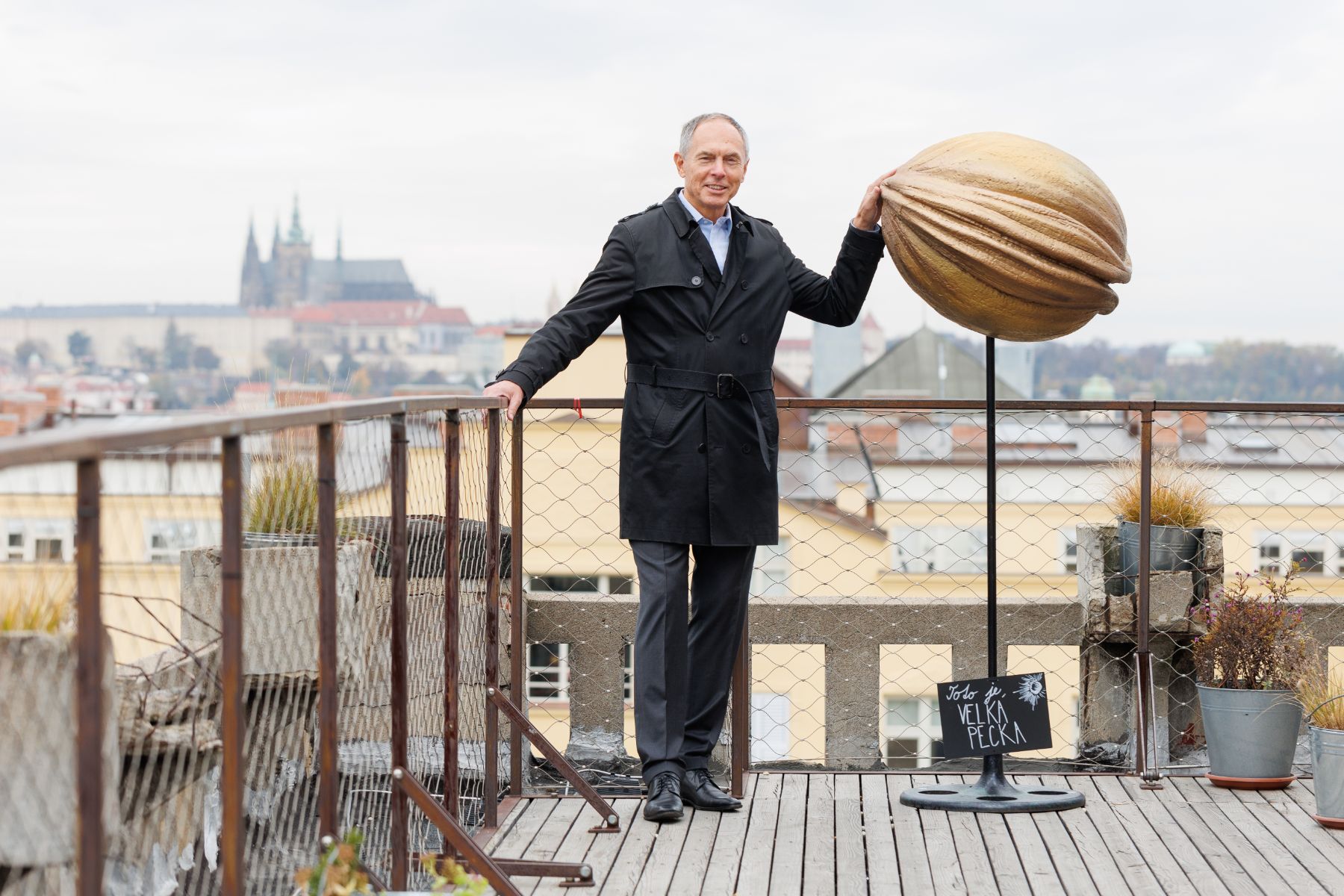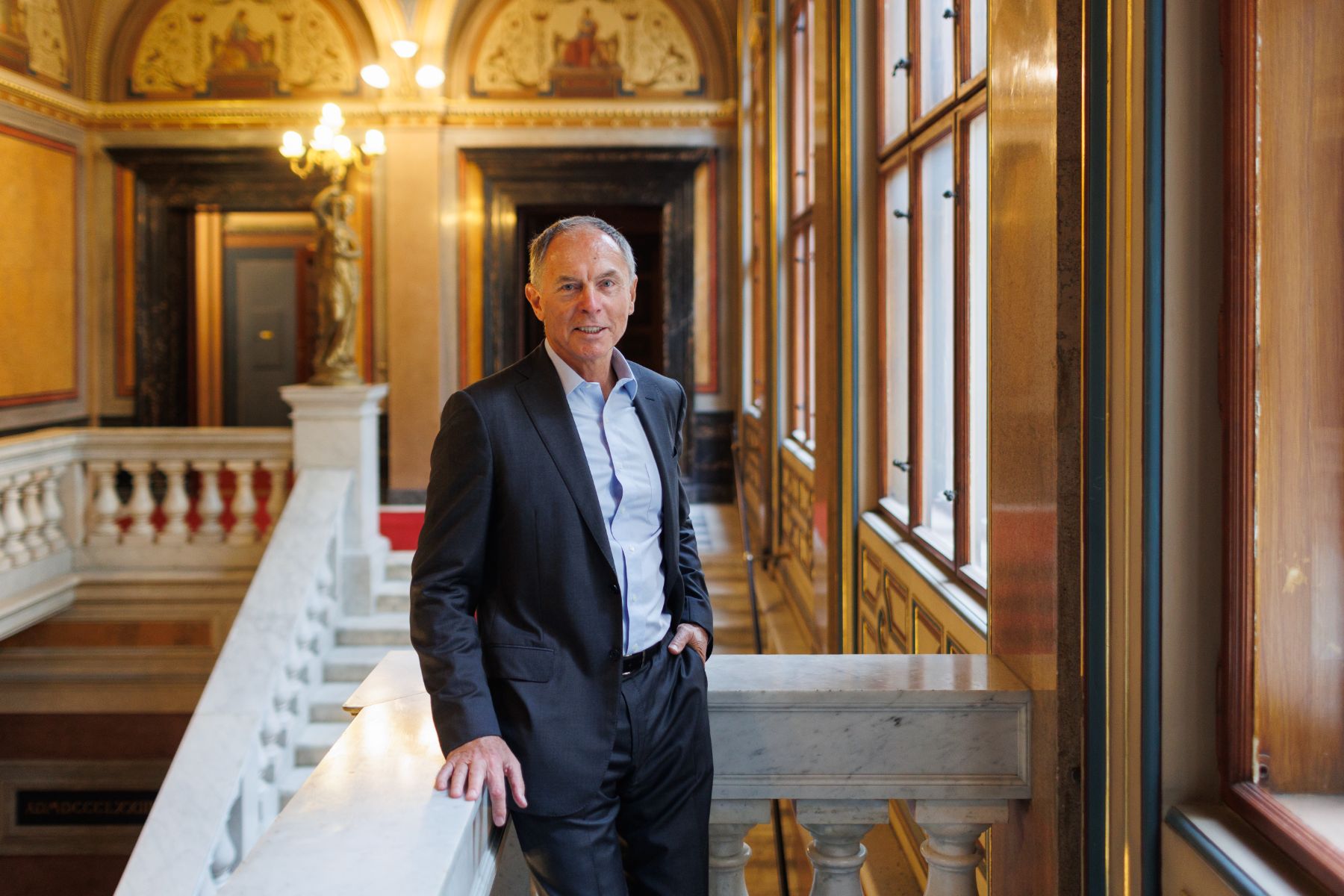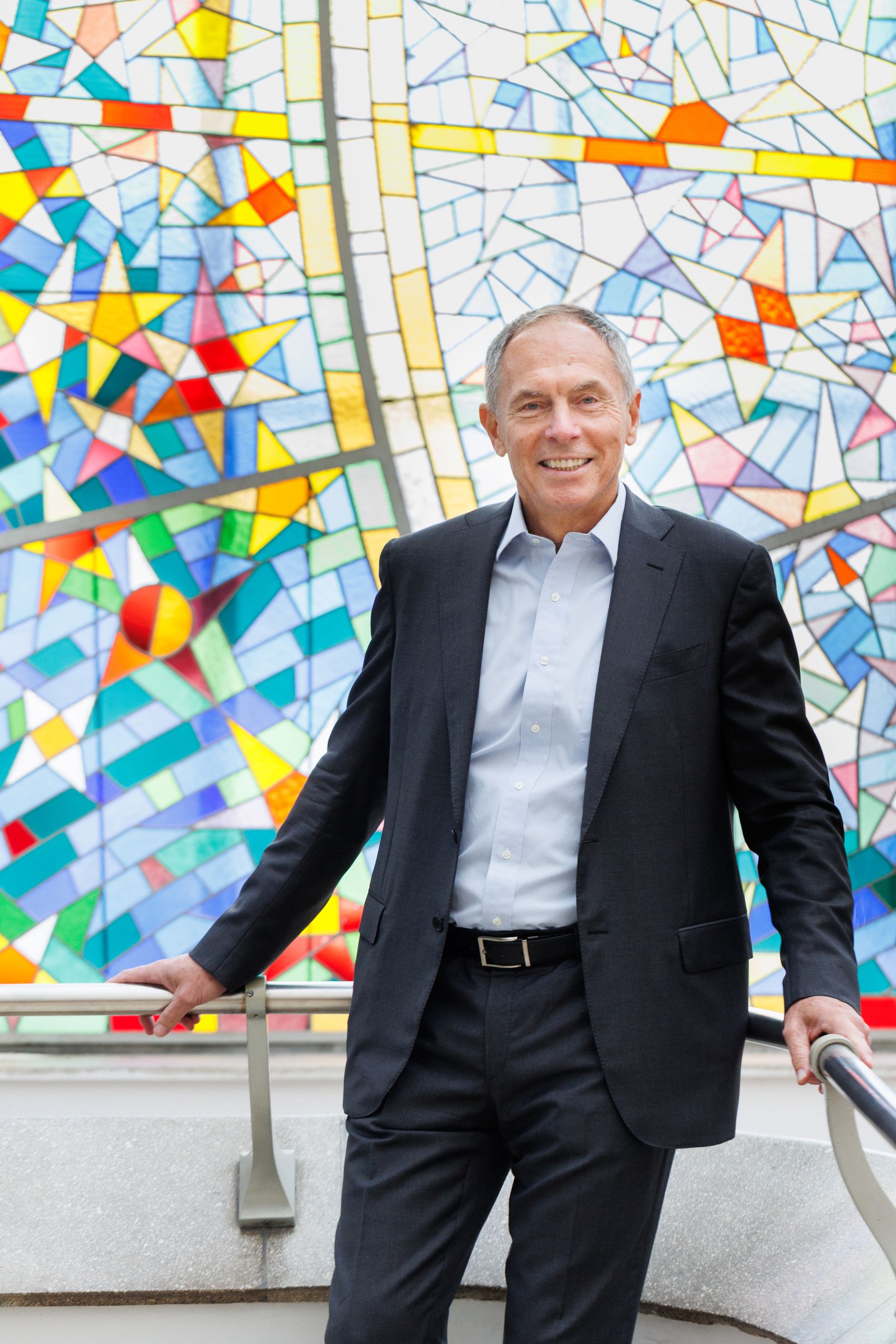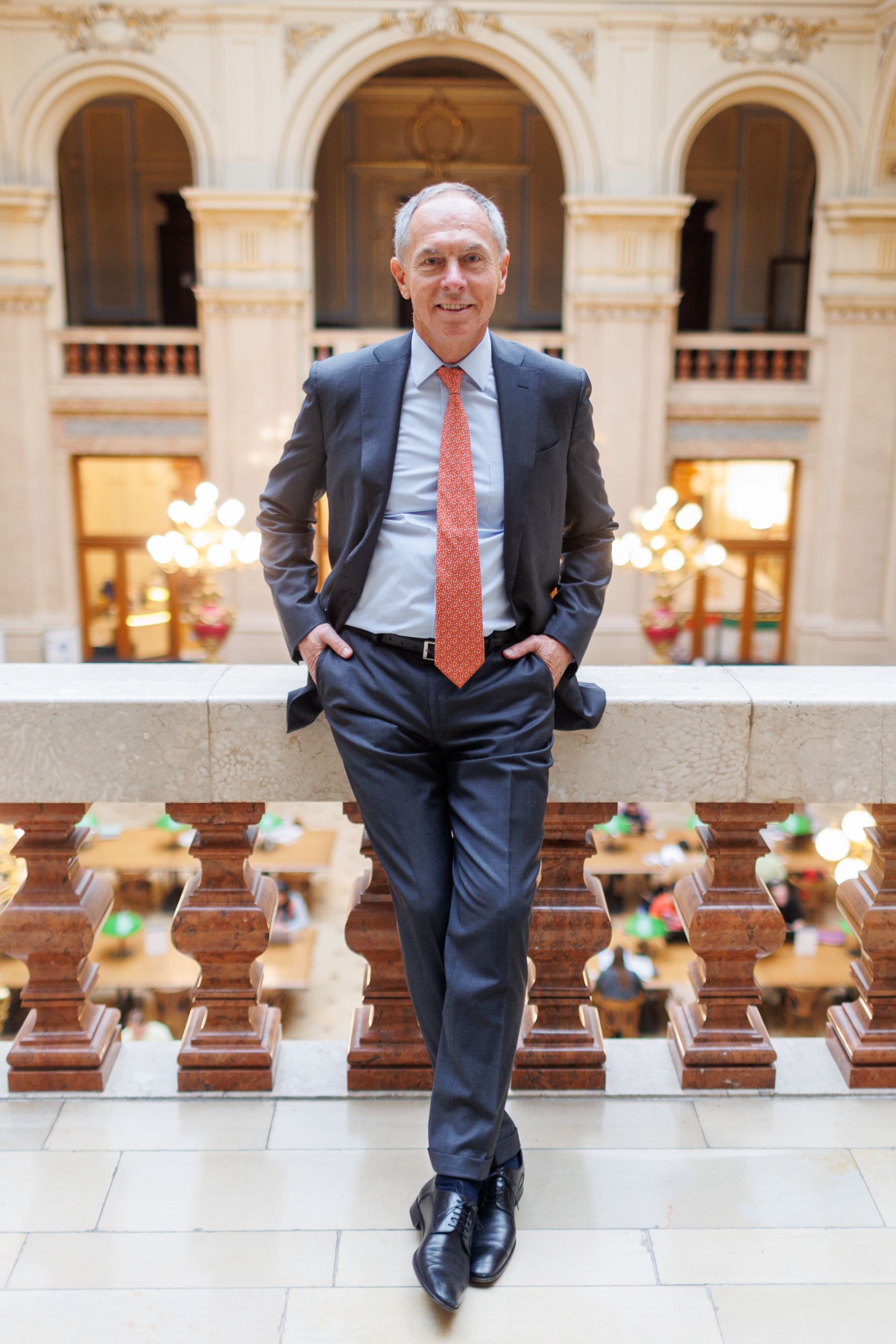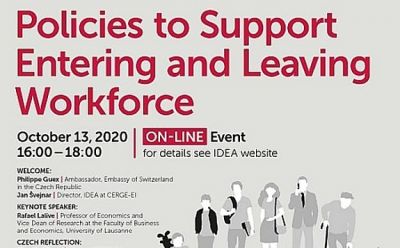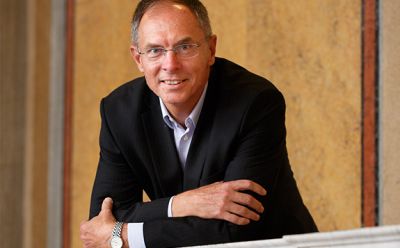“Any country should be able to draw upon its assets. Since we do not have mineral deposits, we must focus on human resources, on education,” says top Czech economist Jan Švejnar, based at Columbia University in New York and at the CERGE-EI Economic Institute in Prague.
When people talk today about CERGE-EI, a joint economics department of Charles University and the Academy of Sciences, they use words like unique, cutting-edge, renowned... When you founded it 30 years ago, what was your main aim?
In the early 1990s, [former foreign minister] Josef Zieleniec and I realised that we needed to educate a new generation of top economists who understood the market economy and Western economic science. The pre-revolutionary economists of that time were experts mainly in central planning... We decided to fully adopt the American university system, which we knew worked well in the best scientific and pedagogical institutions.
We therefore set up a management and supervisory committee, the Executive and Supervisory Committee, which was and is composed of the best economists from all over the world. And we gave it the responsibility to determine and maintain quality. And that was the fundamental and unique thing that made us do something that no other country has done.
The vision was to for our graduates to emerge one-third as academics, a third as economists for the civil service and a third for the private sector. And this was and is still being done today. We are the only institution of this type and quality operating in the former Soviet bloc and one of the best in Europe. We are an example that if you insist on quality, it is possible to achieve international excellence.
Can such success be replicated elsewhere?
Yes, I think it can. The key is the aforementioned management and supervisory committee, which has the power and strength to determine and maintain quality. I myself was involved in something similar at the University of Pittsburgh, which decided it wanted to move up from 75th in the economics rankings. So they created 10 professorships and invited the best experts. And indeed, my colleagues and I were able to raise the the school to the 16th through 18th rankings. Once you achieve success, you mustn’t let up: they faltered in Pittsburgh and have since dropped back down to 75th spot.
On the flipside, what is the biggest weakness of CERGE-EI?
The most difficult problem we face is that we have too little funding and our size is below what economists would call the "minimum effective size" - institutions need a certain number of people to be sustainable and to function effectively. We are about 20 research and teaching staff members, and we are trying to do as much as three times as many people would do at other top institutions. And this situation is very fragile, because the best one receive tempting offers from abroad, and if a few of the 20 were to leave, it would cease to be credible and would make it harder to be able to keep the institution at a high level. Excellent scientists would stop accepting our offers and the institution would go from excellent to average or below average… It is important to remember that top experts have many offers, and moving to the Czech Republic with the whole family for a small or unstable institution may be too risky for many, so we are in intensive negotiations to increase the number of academic positions and gain more stability.
Do you ever feel that the centre is better known abroad than in the Czech Republic?
The perception is changing, but slowly. CERGE-EI is a scientific institution. It publishes most of its work in prestigious international journals, which few beyond specialists in the field understand because they are full of mathematics and statistics. That is why I set up the IDEA (Institute for Democracy and Economic Analysis) think tank at CERGE-EI in 2008, to publish studies that address important economic issues but are also understandable to people from other disciplines or politicians. But again we are running into a lack of funding - it mirrors the state of the country. A similar unit at University College London (UCL), which inspired me, has government funding because both political parties recognise the importance of such studies.
At your 70th birthday party last year, you spoke about the need to reform education in the Czech Republic, invest in people and focus on excellence. Do you feel we are moving in the right direction and fast enough?
I think it is improving. Any country should be able to benefit from or draw upon its assets. Since we do not have mineral deposits, we must focus on human resources, on education. And the second aspect is that the world has changed - today it is not enough to be so-so, you have to be excellent to succeed! Only the truly best profit and dominate the market. And universities are key in all this, producing top professionals who then positively influence the public and private sectors.
What is the perception of the Czech academic environment abroad?
People abroad know that we have some really top scientists and teams. The drawback is that we do not have a single university in the top 100. This is a sign of quality for the whole world. I like to illustrate with an example: if you ask anyone how good the business school at Princeton is, most people will tell you “it's top notch”. The punchline is that Princeton doesn't have a business school! But it is such an excellent university that no one doubts the excellence of all the majors.
How do we change the perception of the social sciences? When I approached over 20 international women scientists working at CU on the occasion of International Women and Girls in Science Day, at least four wrote that they did not feel they were the “real” scientists like chemists, physicists or biologists and that they “only” did sociology or economics.
This is perhaps a remnant of the communist system that favoured the natural sciences. In the United States or Western Europe, fields like economics, sociology and many others are seen on the same level as biology or physics because they use the same methodology, the same mathematics and statistics, just in different fields. At top universities abroad, there is no distinction between disciplines, only between quality. In the Czech Republic, however, this division still persists as a relic of the past. This can be seen, for example, in the budget of the Academy of Sciences, where the social sciences and humanities are significantly underfunded compared to the natural sciences and engineering.
Do you think scientists need to be active on social media?
I think it is inevitable today. Social networks are so ubiquitous that it is necessary for the opinions of experts to be heard there, otherwise we are willingly giving space to assumptions or misinformation. I myself am trying to educate people about economics and to be active in the media. And I encourage my colleagues to do the same. I am convinced that the trading of opinions and healthy debates based on data is extremely important for society.
You often mention that Czech students lack self-confidence. How should we promote it?
We need to show children from a very early age that they can do it, that they can aim higher. Give them tasks that challenge them, but create the environment and conditions that they can also overcome challenges. This will give them confidence. I always remember a student from Plzeň who told me after the talk that he would try to apply to Brno after his bachelor's degree. Nothing against Brno, but I asked for reasons and he said, “You know Plzeň is much smaller than Prague, so Brno could be a good intermediate.” It hadn't occurred to him that he could go straight to Prague or, with the same distance to the west, abroad! This is an example of how important it is to fuel in young people the desire to aim high and to examine all existing possibilities.
| Professor Jan Švejnar, dr. h. c. mult. |
| Jan Švejnar is a leading Czech-American economist associated with CERGE-EI in Prague and Columbia University in New York. He moved to the USA in 1970. Švejnar studied at Cornell and received his Ph.D. in economics from Princeton. In the 1990s, he co-founded the CERGE-EI Center for Economic Research. He has also been a professor at Cornell, Pittsburgh and the University of Michigan, and has been based in New York since 2012. There he became Professor of Economics and International Relations, plus Director of the Center for Global Economic Policy. He was a candidate in Czech presidential elections in 2008 against then incumbent Václav Klaus. |


